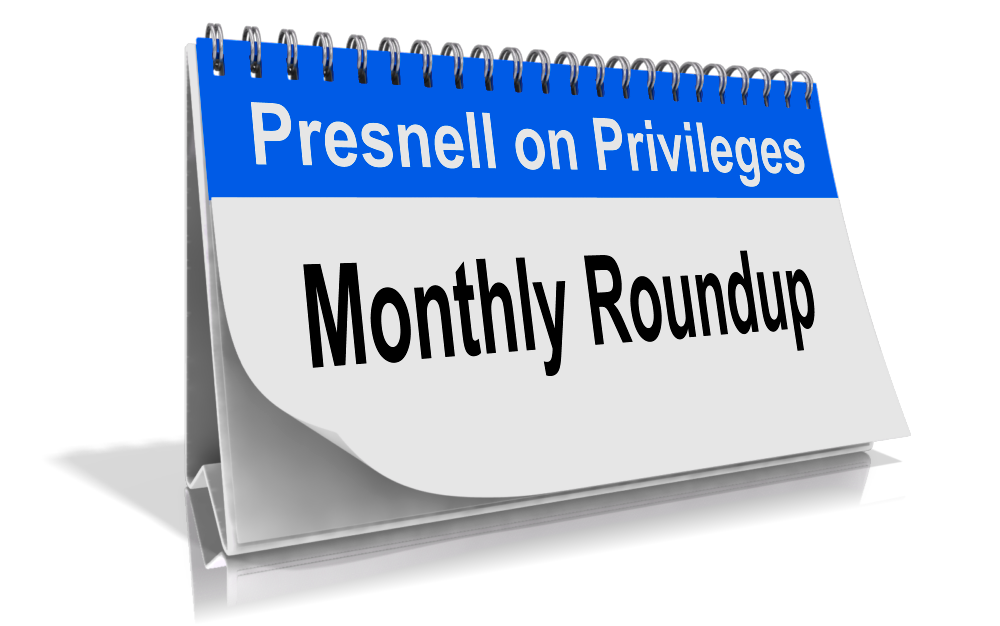We see privilege issues discussed in judicial decisions, legal commentary, and mainstream news. Here is my Monthly Privilege Roundup of interesting privilege issues for July 2017.
- Following a military judicial order, available here, that military prosecutors stop listening to conversations between Guantanamo
 Bay detainees and their military attorneys, a military defense lawyer renewed complaints that such attorney-client privilege breaches continue. Read the defense lawyer’s letter here. Military prosecutors respond that any listening is inadvertent. Read the Miami Herald story here.
Bay detainees and their military attorneys, a military defense lawyer renewed complaints that such attorney-client privilege breaches continue. Read the defense lawyer’s letter here. Military prosecutors respond that any listening is inadvertent. Read the Miami Herald story here. - Ever heard of the researcher-participant privilege? Karen Drake and Richard Maundrell published a thorough article discussing whether, under Canadian law, researchers who obtain research participants’ confidential information must disclose this information when subpoenaed. You may read the article, published in the McGill Journal of Law & Health, here.
- Will the Shelby County (Memphis) Board of Commissioners take some action against Board member Justin Ford following his “Alford” plea to a domestic-violence charge? The Board met in Executive Session to discuss, but the attorney-client privilege purportedly protects those discussions. Story from the Commercial Appeal here.
- Apparently thinking that it received too little in litigation updates, the Wilmington (DE) City Council recently passed an ordinance that requires the City Law Department to provide the Council and other “city officials” with bimonthly reports on pending litigation. And others could obtain the reports through a public-records request. But would these reports reveal attorney-client privileged information? Read the story here.
- Elizabeth L. Robinson recently published a nice piece in the North Carolina Law Review discussing whether strengthening the federal reporter’s privilege is moot given that governmental agencies may obtain confidential-source information “outside the subpoena process.” Read the article here.
